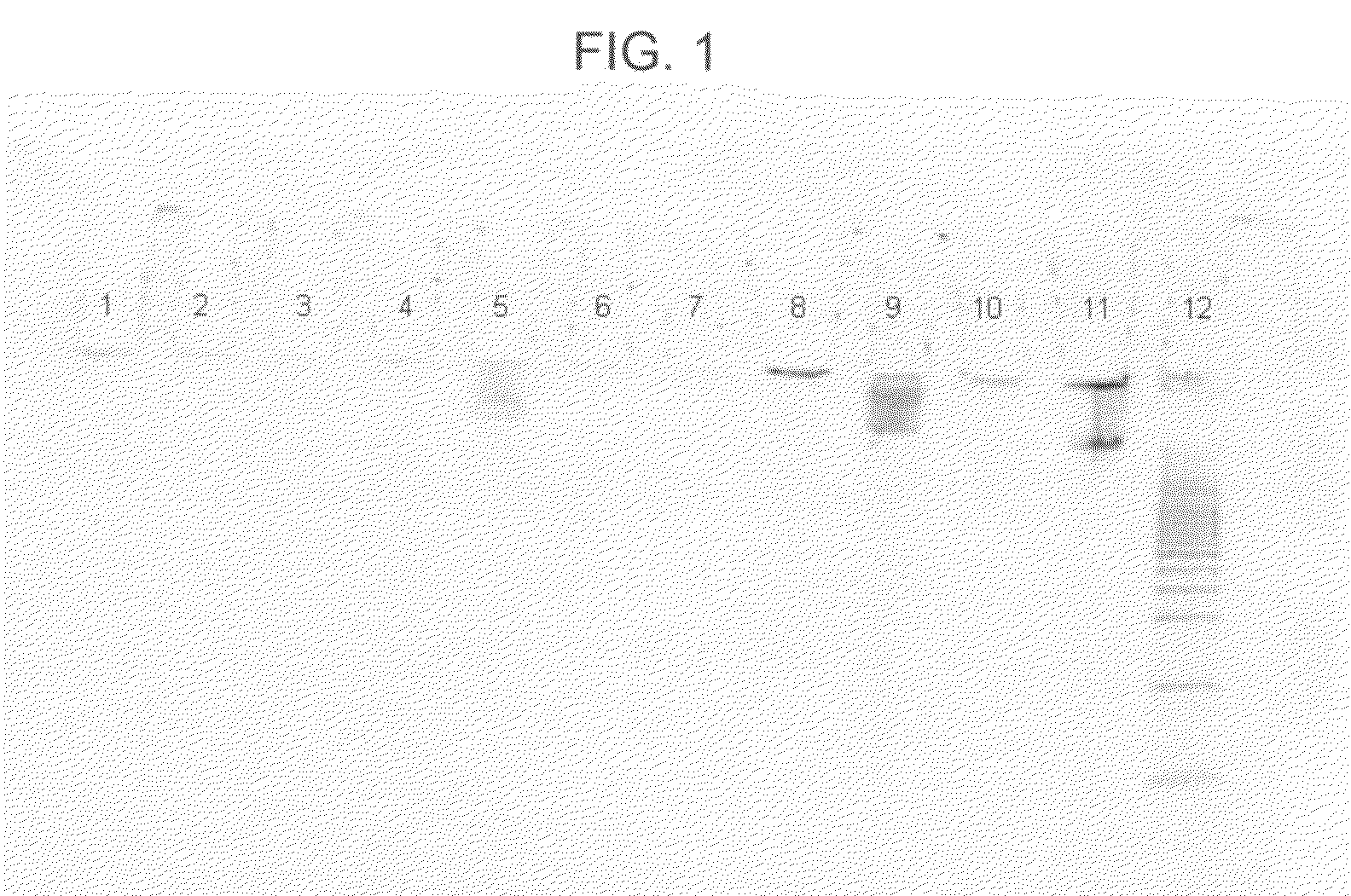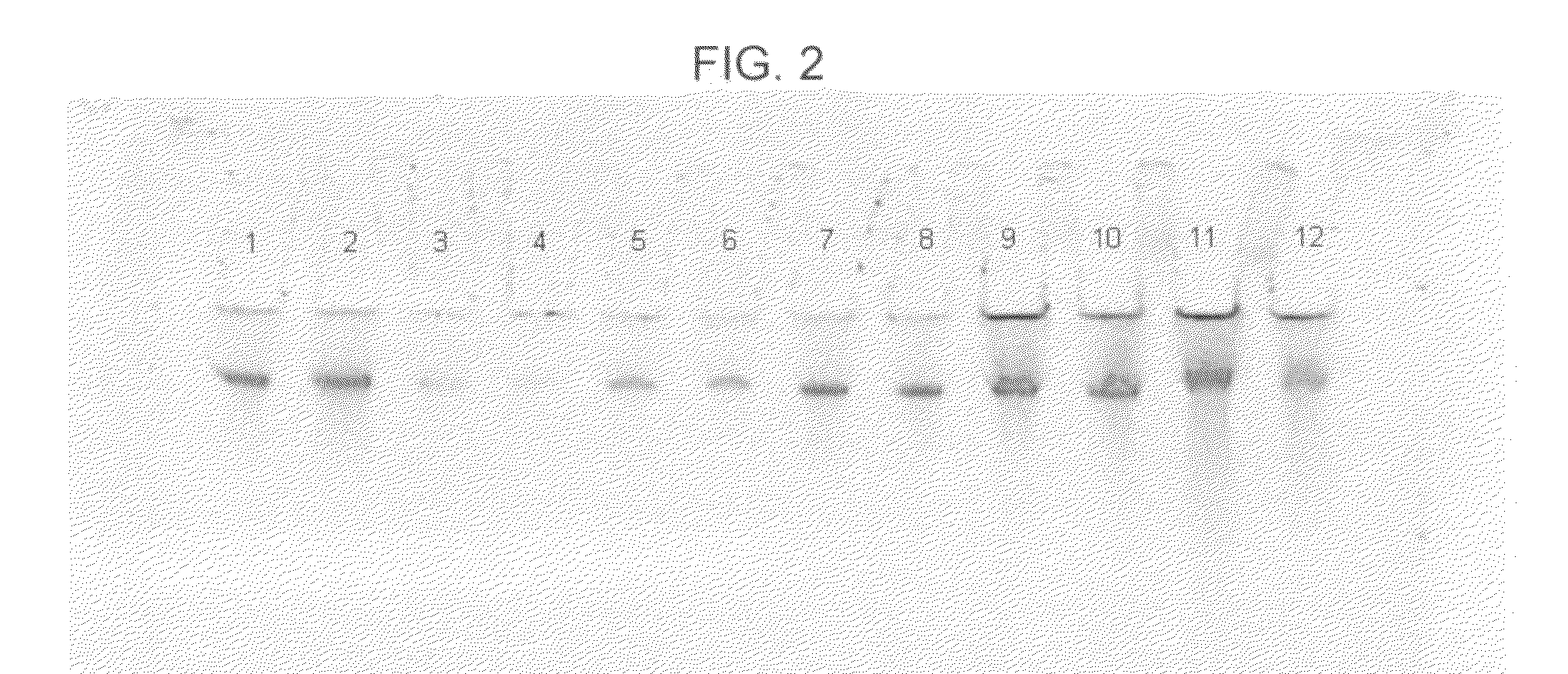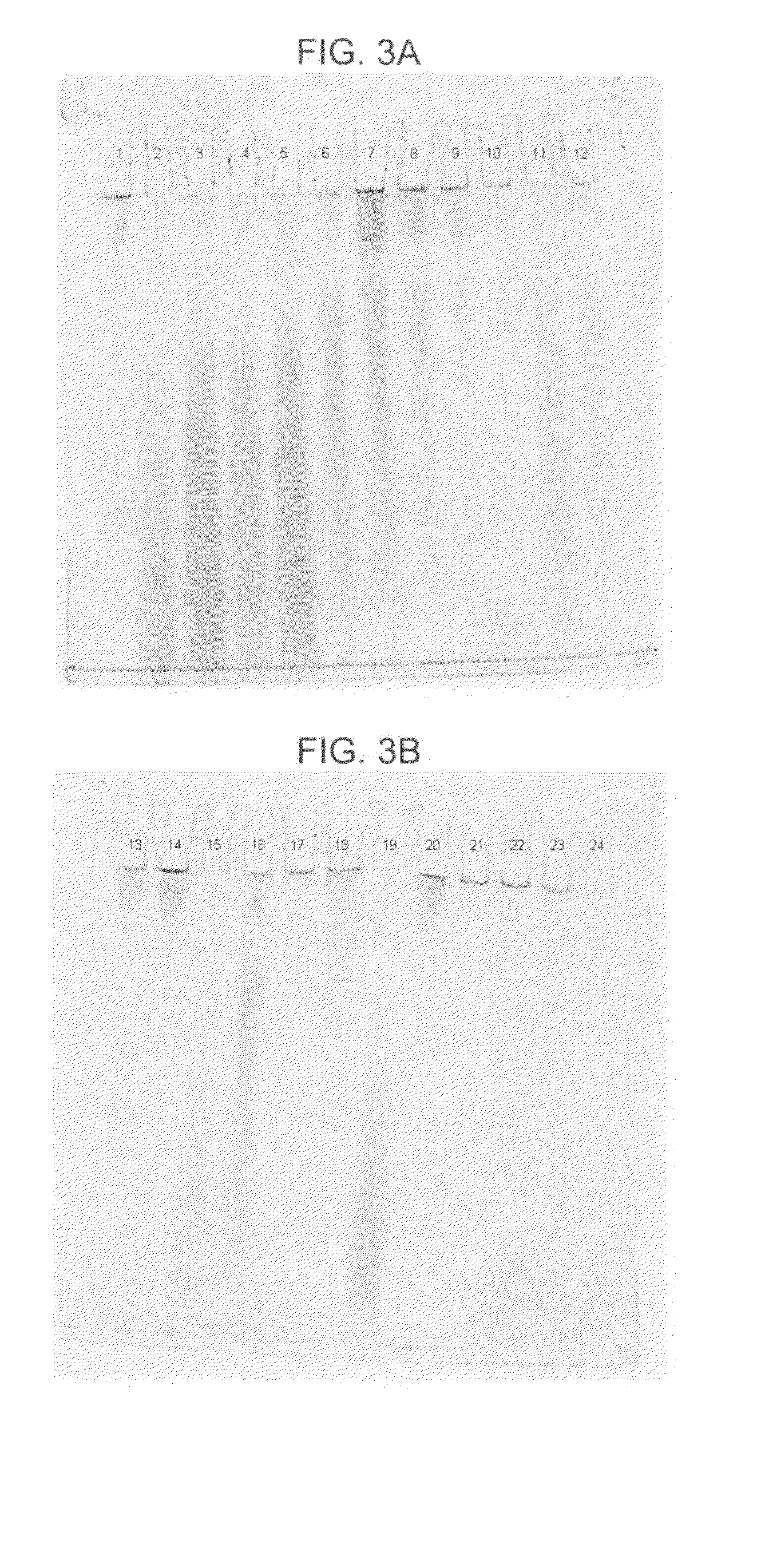Methods of purifying a nucleic acid and formulation and kit for use in performing such methods
- Summary
- Abstract
- Description
- Claims
- Application Information
AI Technical Summary
Benefits of technology
Problems solved by technology
Method used
Image
Examples
example 1
[0047]In this example, paramagnetic apple or citrus pectin particles suitable for use in certain embodiments of the present invention as a binding matrix were prepared as follows:[0048]1. In a beaker, mix 0.5 gm of Fe3O4 particles (magnetite, available from SIGMA-ALDRICH™ of St. Louis, Mo., catalog item 31,006-9) with 1.0 gm of apple pectin particles (available from SIGMA-ALDRICH™, catalog item P8471) or citrus pectin particles (available from SIGMA-ALDRICH™, catalog item P9135) in 8 ml of water.[0049]2. Adjust the pH of the mixture, first by adding 3.0 ml of 56% KOH. After mixing for 5 minutes at about 21° C., lower the pH by adding 3.3 ml of 3.0M HCl, with periodic testing of the mixture's pH using pH paper. The resulting pH should be about 3. Next, add 3.5 ml of 1.32M KOAc having a pH of 4.8 so that the resulting pH of the mixture is between 4 and 5.[0050]3. Allow the mixture to sit overnight at about 21° C. Some large (e.g., 1-2 cm3) particles will form and settle to the bottom ...
example 2
[0055]In this example, nine different lysis-binding formulations were used, some more successfully than others, in an attempt to purify DNA from human whole blood samples. The following procedure was used:[0056]1. Prepare nine samples, 1-9, by adding 50 μl of MAGAZORB™ paramagnetic particles, followed by 200 μl of human whole blood (available from Bioreclamation, Inc., Hicksville, N.Y., catalog item HMPLEDTA3), to each of nine 1.5 ml plastic tubes.[0057]2. Add 800 μl of one of the following nine formulations to a different one of samples 1-9 as follows: (a) to sample 1, add 5.0M acetamide; (b) to sample 2, add 2.6M guanidine hydrochloride (GHCl); (c) to sample 3, add a mixture of 2.6M GHCl and 5.0M acetamide; (d) to sample 4, add 2.6M GTC; (e) to sample 5, add a mixture of 2.6M GTC and 5.0M acetamide; (f) to sample 6, add a mixture of 4.3M GHCl and 5.0M acetamide; (g) to sample 7, add 6.5M GHCl; (h) to sample 8, add 9.0M acetamide; and (i) to sample 9, add a mixture of 4.3M GTC and ...
example 3
[0067]In this example, DNA from human whole blood samples was purified using a GTC-A formulation together with each of four different binding matrices using the following procedure:[0068]1. Prepare eight samples, 1-8, by adding 800 μl of “L1,” which consists of 2.7M GTC and 6.8M acetamide, to each of eight 1.5 ml plastic tubes.[0069]2. To each sample, add 20 μl of 20 mg / mlproteinase K and mix the sample by pipetting.[0070]3. To each sample, add 100 μl of human whole blood and mix six times by pipetting.[0071]4. Incubate each sample for five minutes at a temperature of about 56° C., mix each sample by pipetting, and then incubate each sample for an additional five minutes at about 56° C.[0072]5. Add one of the four aforementioned binding matrices to each of samples 1-8 as follows: (a) to each of samples 1 and 2, add 40 μl (1.9 mg) of MAGAZORB™ paramagnetic particles; (b) to each of samples 3 and 4, add 3 μl of paramagnetic carboxy-cellulose GENFIND™ particles; (c) to each of samples ...
PUM
| Property | Measurement | Unit |
|---|---|---|
| Molar density | aaaaa | aaaaa |
| Molar density | aaaaa | aaaaa |
| Molar density | aaaaa | aaaaa |
Abstract
Description
Claims
Application Information
 Login to View More
Login to View More - R&D
- Intellectual Property
- Life Sciences
- Materials
- Tech Scout
- Unparalleled Data Quality
- Higher Quality Content
- 60% Fewer Hallucinations
Browse by: Latest US Patents, China's latest patents, Technical Efficacy Thesaurus, Application Domain, Technology Topic, Popular Technical Reports.
© 2025 PatSnap. All rights reserved.Legal|Privacy policy|Modern Slavery Act Transparency Statement|Sitemap|About US| Contact US: help@patsnap.com



